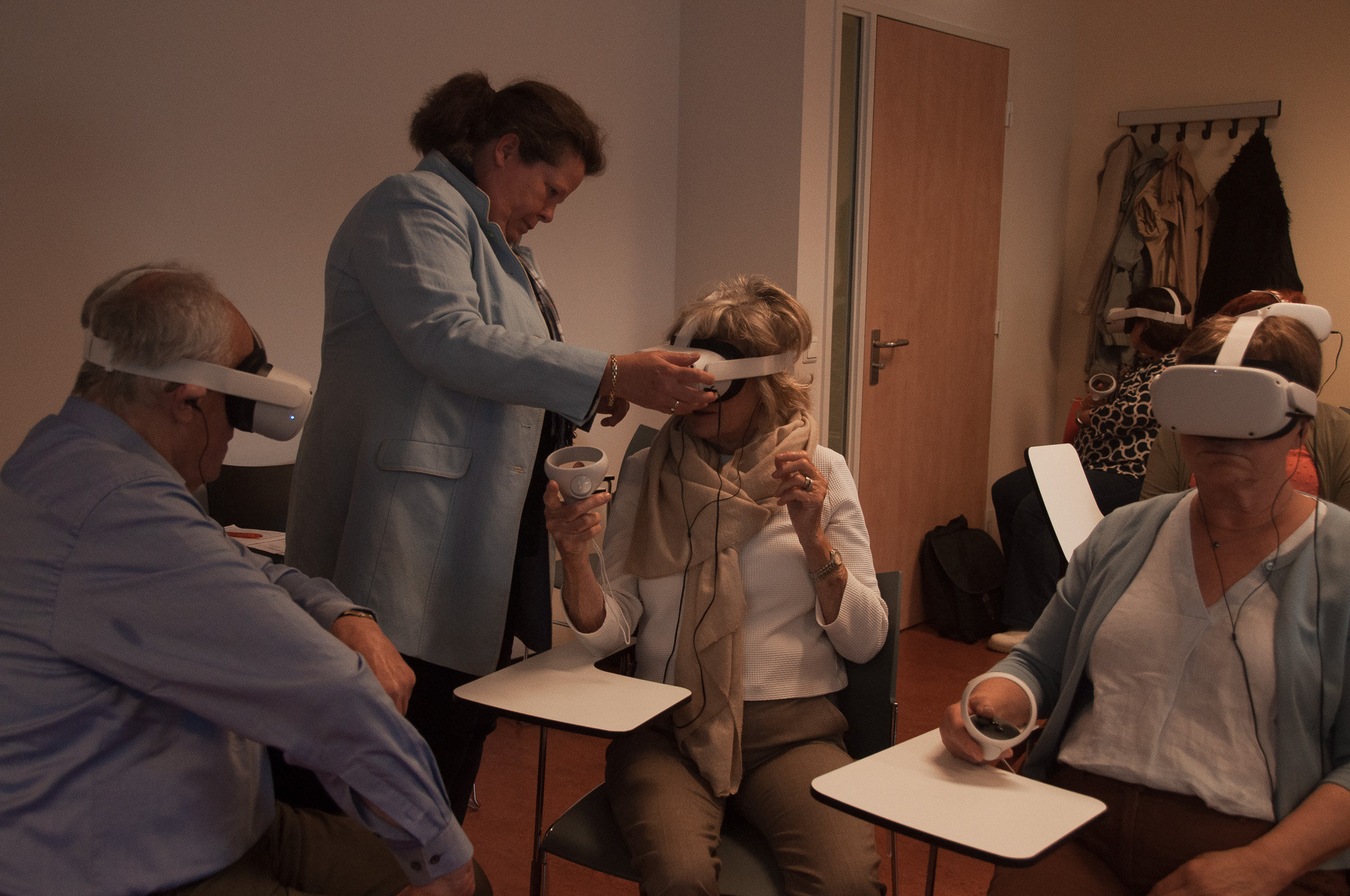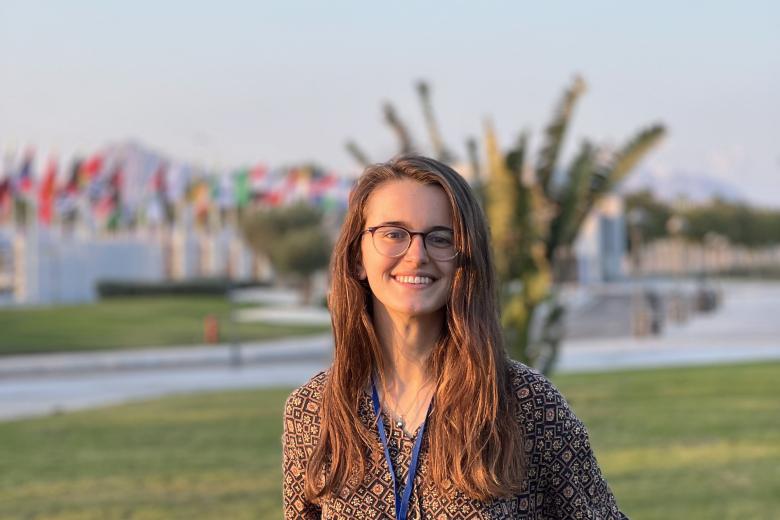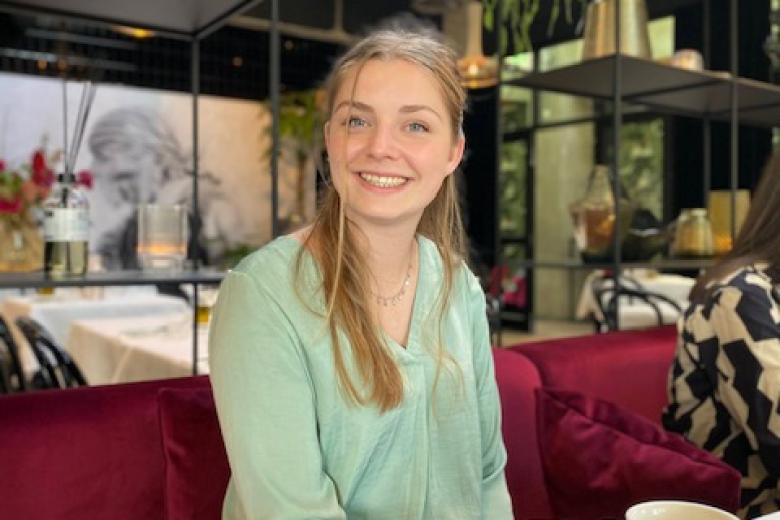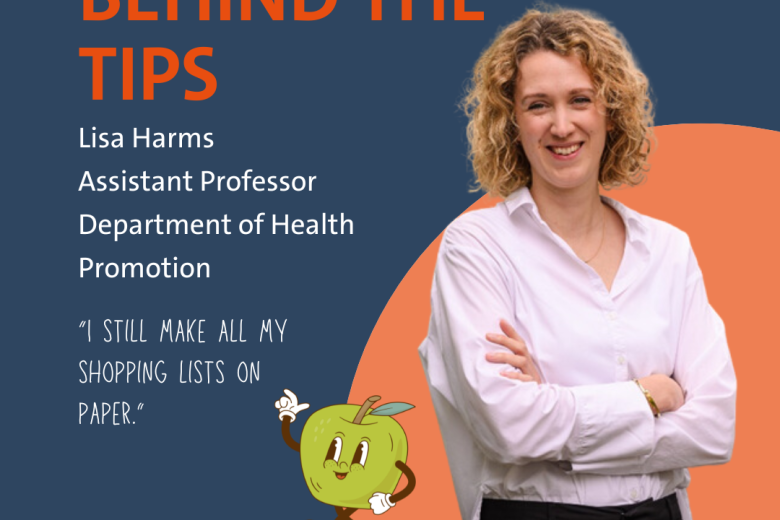Health Sciences focuses on virtual technology
Students indicate that they remember the material better. Teachers can integrate a sense of real-life into their training, and there is less need for home visits. Virtual technology has a significant impact on the Health Sciences (HS) programme. The initiator of virtual technology within the programme is Nynke de Jong, a member of the taskforce "Instructional Design and E-learning." Nynke primarily focuses on the use of VR goggles in education.

"This year, we launched several VR projects in which HS students put on the VR goggles. Two of them are 'The Human Cell' and 'Technology in healthcare,'" Nynke explains. The video about technology in healthcare was developed, among others, by Maastricht University. From beginning to end.
Technology in healthcare revolves around an older care recipient who has had a stroke and struggles with living at home. She receives support from family members. The video fully immerses the students in the life of the care recipient, as if they were standing beside her in the house. "The advantage of VR goggles is that you are completely immersed in what is happening, and you don't get external distractions. So students have no distractions whatsoever while watching the video."
Practice, education, and research come together in the development of a video. "I wrote the script for technology in healthcare, which was then reviewed by teachers from Health Sciences and a teacher from Zuyd University of Applied Sciences, as well as professional healthcare providers. After watching the video, students can use the VR goggles to see when each healthcare provider is involved in the care of this patient. Think of the general practitioner or the health insurer."
The teachers from Policy, Management, and Evaluation of Care, Digital Technology and Care, and Mental Health Care added important details to the video, making it applicable to their specialisation programme. Depending on their specialisation, students can now discuss the use of assistive devices in the home, applications for the care recipient, or the content of conversations between the care recipient and healthcare providers.
Virtual reality is here to stay. Last week, a virtual reality video on intercultural awareness was released, for which students from the bachelor's in Global Studies wrote the script. This video will become a fixed part of the "Pre-Departure Training" for HS students going abroad for their minor. "The main criterion for developing a 360-degree video is that they eventually become a permanent part of the curriculum and contribute to the quality of education," Nynke emphasizes.
Also read
-
Emma Goslin - health goes beyond medical research
Emma has always been interested in health in the broadest sense of the term. “Health goes beyond medical research and care. It is shaped by politics, international health organisations, transnational threats such as climate change, and much more.

-
Ellen Bastiaansen - the new HPIM student
A new generation of young professionals is stepping up to the challenges that the healthcare sector faces today. Including Ellen Bastiaansen, a master’s student in Healthcare Policy, Innovation and Management with a background in prevention and mental health.

-
Evidence-based health tips for students: supermarket psychology
In the upcoming months, we’ll share tips on Instagram for our students on how to live a healthier life. Not just a random collection, but tips based on actual research happening at our faculty. The brains behind this idea are Lieve Vonken and Gido Metz, PhD candidates at CAPHRI, the Care and Public...
